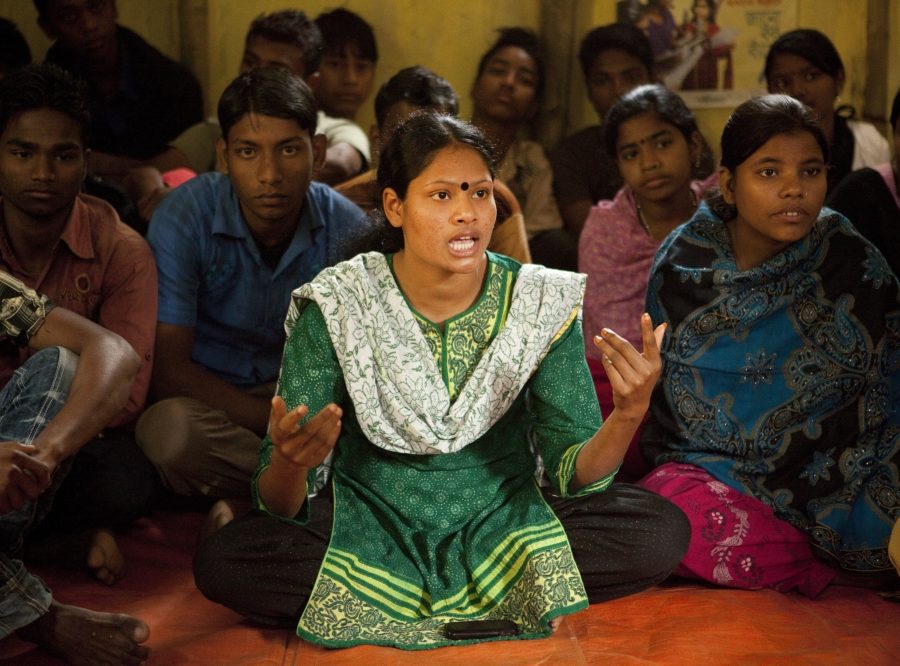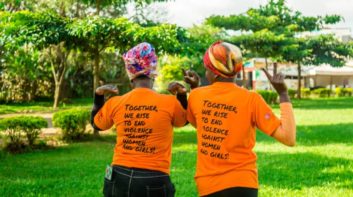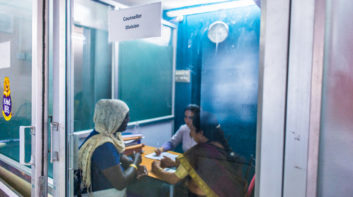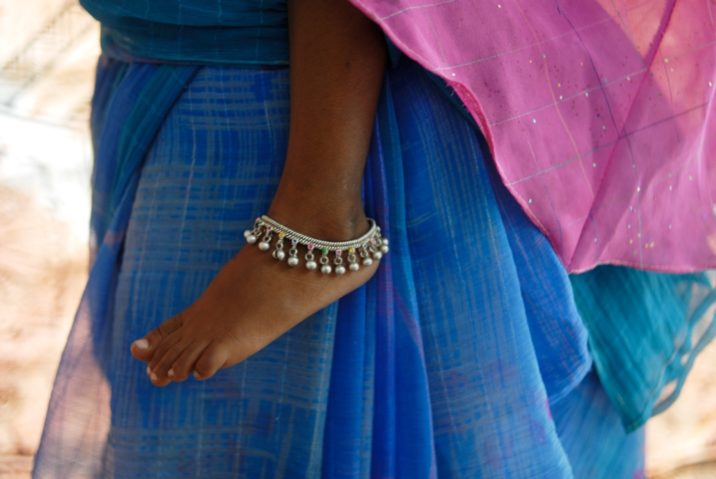
Gender equality
With young women aged between 15 and 24 twice as likely to contract HIV than men of the same age, the pursuit for gender equality is vital to end AIDS.
This means preventing and addressing gender-based violence and inequality in all its forms, as it acts as a major barrier to accessing services, and particularly makes women – especially young women – and those with diverse sexual orientation and gender identity more likely to get HIV.
In sub-Saharan Africa, five in six new infections among adolescents aged 15-19 are among girls. There are many reasons for this, including gender norms that restrict women’s right to make decisions and, therefore, control over when, how and with whom they have sex, as well as their ability to protect their sexual health.
In addition, women living with HIV, sex workers, transgender women and women who use drugs, often face multiple, overlapping forms of gender discrimination, and are disproportionately impacted by HIV and AIDS.
What’s more, gender inequality, violence and discrimination all make it hard for women to access the HIV and sexual and reproductive health and rights (SRHR) services they need. All of which contributes to the fact that AIDS-related illness remains the leading cause of death for women of reproductive age.
We want to end this, because HIV doesn’t discriminate.
our approach
We support HIV and SRHR programmes that take into account some of the complex issues that young women face. We do this by being:
Gender responsive – understanding that gender shapes the way we behave as much as our ethnicity or sexual orientation and adapting our approach accordingly. For example, providing female condoms so that young women can control their own sexual health rights.
Gender transformative – encouraging laws and policies that promote equality, human rights and public health and helping women in their diversity understand and change the power dynamics that can occur in intimate, family and community relationships.
HOW WE DO IT
We involve women at risk from, or living with, HIV at every stage of our work to help make their voices heard, and to make sure our programmes and advocacy respond to their priorities.

Frontline AIDS works with women – and men – to make sure that gender is at...

Information, strategies and resources to help HIV programmers identify and meet...

Around the world, women are taking action in an invigorated effort to end...

Pemu Bhutia, from the India HIV/AIDS Alliance South Asia Technical Support...
OUR IMPACT
We’re proud of the work we do to support women and pursue gender equality. In 2019, we:
- Supported over 1.2 million women and 32,622 transgender people to access SRHR services.
- Helped 240,487 female sex workers and 27,503 transgender people access HIV prevention services.

G
HOW OUR WORK HELPS SABERA
Sabera is HIV-positive. Her husband lied to her about his status and knowingly transmitted HIV to her, and therefore, their young son too.
Sabera has faced repeated discrimination and human rights violations because she lives with HIV. She has been deported, lost her son to an AIDS-related illness because the authorities refused treatment and been denied her own medical care after she was hit by a car.
“As soon as I told [the doctor I was HIV-positive], she moved away and so did the entire medical team,” says Sabera. Multiple hospitals refused to take her until eventually she had to lie about her status in order to get help for her serious injuries.
But Sabera is now getting the vital support she needs, after her case was picked up by a Frontline AIDS partner led by women living with HIV.
Will you help us end aids?
I would like to make a donation of:
Please enter the amount you would like to donate, ie: '10.00'

